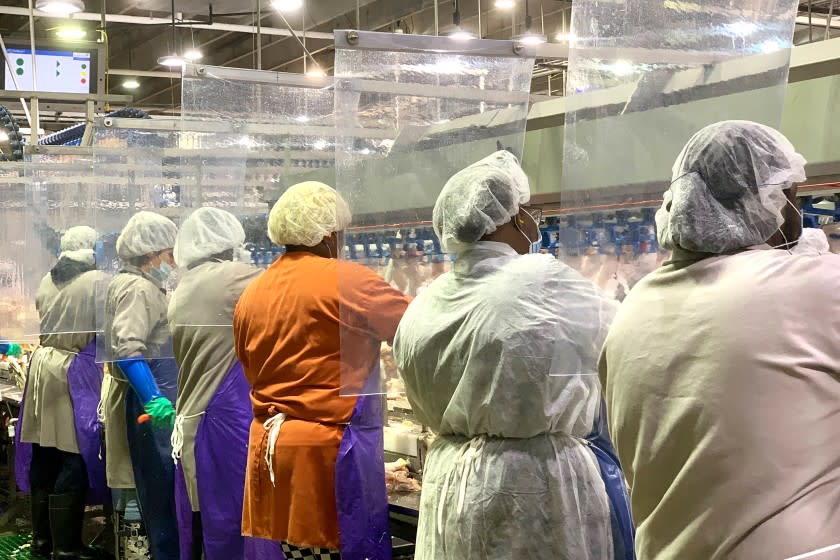Letters to the Editor: Meat processing plants mistreated their workers long before the coronavirus

To the editor: Meat and poultry companies are taking advantage of the American people not only by exploiting the prices of meat, but also by exploiting their employees, who are forced to work in unsafe and unsanitary conditions that have become even worse amid the coronavirus pandemic. ("'Is pork essential?' In a Smithfield town, a coronavirus-stricken meat factory comes back to life," Column One, May 29)
Now Congress is debating whether to immunize these corporations from lawsuits.
According to a recent Oxfam report, even before the pandemic hit, poultry workers found themselves under such pressure to keep up with breakneck processing speeds that many resorted to wearing diapers on the production line due to infrequent bathroom breaks. Is it any surprise that these companies failed to take sufficient safety measures to prevent their workers from contracting COVID-19?
We as a society need to demand that meat and poultry companies protect innocent, hardworking people from falling ill and dying. We must also ask the government to do its job by not letting companies off the hook when their behavior is negligent and instead enforce the laws that require safe and healthy workplaces.
Abby Maxman, Boston
The writer is president and chief executive of Oxfam America.
..
To the editor: As I read the article on the Smithfield pork processing plant and the jobs it provides, a thought occurred to me: Does anyone think of the pigs, or are they just a commodity, a means to an economic end?
Perhaps the world would be a kinder place if we truly considered the plight of animals raised for food — their fear, their pain and their dread of knowing they are going to be slaughtered.
Just some food for thought.
Kristen Kessler, Ventura

